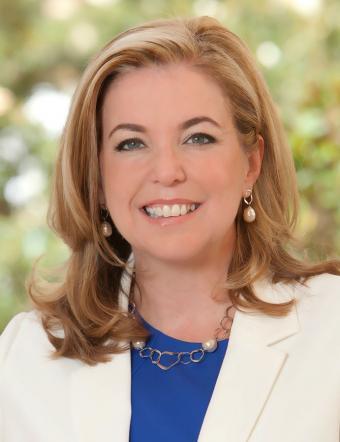PROVIDENCE, R.I. [Brown University] — After launching a major academic planning effort and programs in innovation and entrepreneurship, Brown Provost Vicki Leigh Colvin will leave her position July 1, 2015, to return to a career of teaching, research and University service.
Colvin served as vice provost for research and the Pitzer-Schlumberger Professor of Chemistry and Chemical and Biomolecular Engineering at Rice University before arriving at Brown in July 2014, succeeding Mark S. Schlissel, who was named president of the University of Michigan.
She established a national reputation as an accomplished administrator at Rice, and at Brown has led the deans of the College and Graduate School, dean of admission, director of financial aid, vice president for research, and the institution’s chief information officer in a comprehensive academic and financial planning process to meet the strategic goals articulated in the University’s Building on Distinction strategic plan.
“Vicki has served as the University’s chief academic officer and as a critical partner in advancing the University’s academic and research mission during a significant time of transformation and growth at Brown,” Brown President Christina Paxson said. “Her leadership in launching the academic planning that will help Brown achieve the goals for creative and innovative teaching and scholarship articulated in our strategic plan will benefit the University for years to come.”
Colvin also launched initiatives in data sciences, online learning, and entrepreneurship that will remain important institutional priorities, Paxson added.
Among many other initiatives, Colvin conceived an immersive pilot program in entrepreneurial innovation for Brown students, the Summer Breakthrough Lab (B-Lab), which will launch in June, and expanded the role of the head of the School of Professional Studies to create broader innovative educational opportunities. This includes support for faculty efforts in digital education, innovative master’s education, and programs geared toward Brown alumni, among other initiatives. Colvin also has focused on initiatives to complement the close faculty-student engagement at the core of the Brown learning experience with learning beyond the classroom.
She spurred new faculty governance in the arts; worked closely with graduate students on improving their financial support; championed the expansion of Brown’s summer Bridge program, Catalyst, which prepares incoming students for the rigors of the sciences; and partnered with Paxson to convene and charge the Deficit Reduction Working Group that identified recommendations for significant cost-savings at Brown.
After serving a year in the provost’s position at Brown, Colvin plans to pursue other opportunities for balancing administrative contributions with teaching and research.
"I love Brown and have been proud to contribute to creative and inventive work that will keep Brown on the leading edge of academics and research,” Colvin said. “At the same time, I would like more opportunities for teaching and research activity. I have always contributed to university service in a way that allowed me to pursue my many other academic interests, and I’ve learned this year, that while I love this job, I want to be able to engage in more substantial scholarship.”
Colvin has a distinguished research record as a physical chemist, having received the National Science Foundation’s CAREER Award earlier in her career. The honor is the NSF’s most prestigious award for junior faculty, intended to help some of the nation’s most promising young scientists establish their research and teaching careers. More recently, Colvin was recognized as among the most highly cited researchers in chemistry by the flagship materials journal of the American Chemical Society. She also won Rice’s Phi Beta Kappa teaching award and the national Dreyfus Teacher-Scholar Award.
Colvin has authored or co-authored more than 140 journal articles or book chapters, and her work has been cited more than 20,000 times by other researchers. She has been honored with fellowships and recognized by national news media. In addition, she serves on advisory boards for National Science Foundation and the National Institutes of Health.
A process for determining Colvin’s successor will be explored by Paxson and members of Brown’s Corporation at the Corporation’s May meetings.

